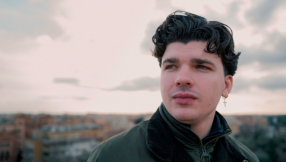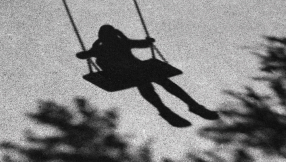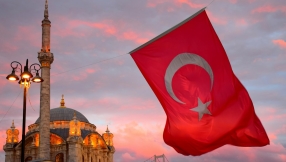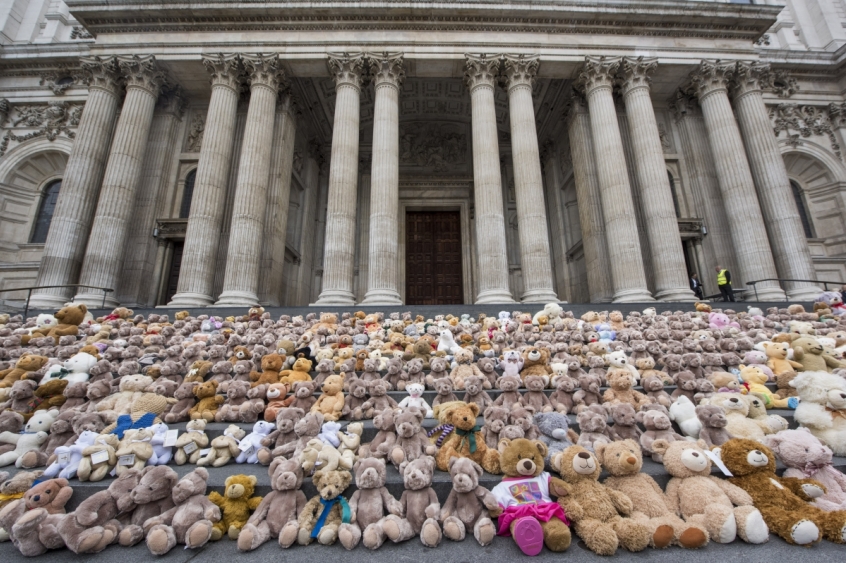
Seven hundred teddy bears were placed on the steps of London's St Paul's Cathedral today as part of a campaign by the international children's charity World Vision to highlight the plight of child refugees, 700 of whom are crossing the border from South Sudan into Uganda every week.
The colourful stunt highlights the growing refugee crisis in Uganda where nearly a million South Sudanese people have taken refuge in settlements, including the world's largest, Bidi Bidi.
World Vison says more than 150,000 child refugees in mass settlements in northern Uganda require therapy after fleeing the violence in neighbouring South Sudan.
World Vision's media officer Carey Lodge said: 'The campaign is called Bears on the Stairs and it's to highlight the growing refugee crisis in South Sudan, where almost a million South Sudanese people have fled across the border and now live in Uganda.
'More than half of those are children – more than half a million in total – and this campaign in particular is about the fact that every single week around 700 children flee either unaccompanied, are separated from their parents or at risk, so lots of these children are coming without their parents, having seen them killed or lost them along the way. Lots of children have had really traumatic experiences.
'The aim of the campaign is to highlight the plight of the children – particularly those who come unaccompanied and have no adult to turn to for help.'
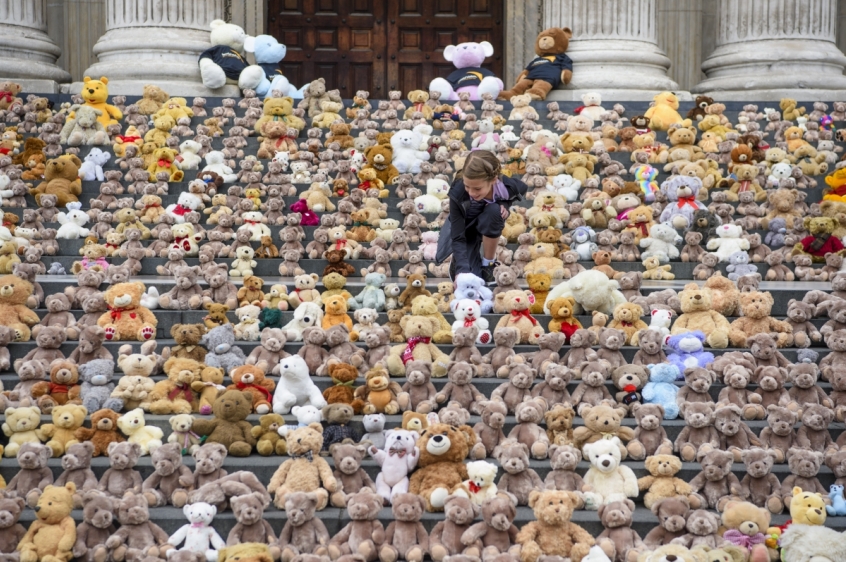
Psychologists and child welfare experts working in the Imvepi and Bidi Bidi refugee settlements of Uganda say nearly all children arriving in the country require psychosocial first aid. Most have suffered and witnessed terrible brutality as the civil war intensifies in South Sudan. Some 60 per cent need urgent specialist therapy to treat the effects of conflict-related stress disorders.
Lodge said World Vision has been working in the refugee settlements, including on the foster programme for unaccompanied children who have fled, providing books, schooling, and meeting basic needs.
'What's so incredible about it, is it is refugee families who are taking in the refugee children – taking in more children on top of their biological kids,' she said.
Another area in which World Vision is helping is 'child friendly spaces', which Lodge says are 'safe spaces for children to come and play and just be kids again, with lots of swing sets and playground equipment'.
There are also 'peace clubs' for children who have only known violence since the civil war in 2013, with South Sudan only having become a country in 2011.
'In peace clubs we teach them about love and forgiveness – how to love and care for one another and not respond with violence to any difficulties,' Lodge explained.
'Our team in the settlements shows the way the community really shifts as a result of the peace clubs and the children learning about love and forgiveness and taking it back to their parents.'
Finally, there is psycho-social counselling to address what Lodge describes as the 'significant mental health crisis'. She continued: 'When the children first come, they don't know how to be normal, can't speak or play. The programmes we put them through help them to reintegrate back into normal society, to deal with those traumatic instances.'
Official figures show that around 100 new children arrive at the settlements every day alone, sick or separated from their parents, with many of the children showing symptoms including insomnia, regressive behaviour, social withdrawal and violent or self-destructive outbursts.
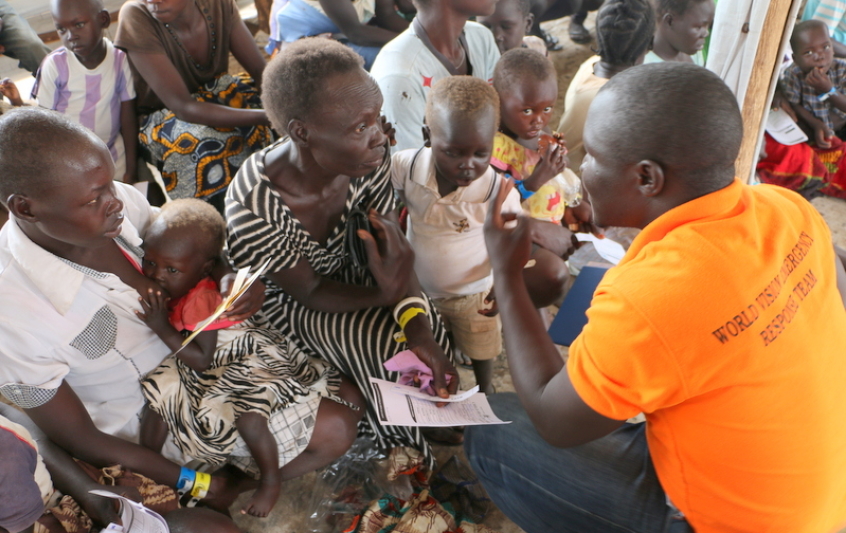
Almost one million refugees have fled South Sudan into Uganda. The neighbouring refugee settlements of Bidi Bidi and Imvepi in Uganda are now home to over 397,000 South Sudanese people who have fled to safety. Among them are over 238,000 children. In June 2017, World Vision reached 285,963 refugees living in Uganda with assistance. Some 62 per cent of South Sudanese refugees in Uganda are children – 86 per cent are women and children.
Support has come from the Game of Thrones actor Liam Cunningham who recently visited Uganda with World Vision. He said: 'I have watched the war weary and hungry from South Sudan arrive into a welcoming Uganda. They are images I won't soon forget. I urge the international community to move quickly to share responsibility for this crisis. Those that say it's not our problem, are the problem.'
World Vision has set up child friendly spaces in five of Uganda's 14 refugee settlements and has supported more than 40,000 children with child protection projects and education.
The charity has been collaborating with the Transcultural Psychosocial Organisation (TPO) to ensure children suffering from high levels of trauma get the specialist support they need. Children in these child friendly spaces are assessed for their psychosocial needs and referred to TPO specialists if they need advanced intervention.
A clinical psychologist at TPO, Dorothy Namara, says: 'Most of the children suffer nightmares, inability to sleep, and are withdrawn. Some have hallucinations – believing that people who attacked them in South Sudan have found them in Uganda.
'"Trauma is like a wound – a silent wound. When a silent wound is not treated, it keeps eating slowly. When trauma is not treated in early childhood, then it manifests in adulthood.'
The Ugandan government, TPO, World Vision and other agencies working in the settlements say they lack the resources to cope with the psychological demands, not least because according to experts, most aid has been channelled towards other humanitarian aid and relief efforts.










